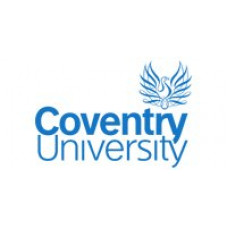International Hospitality and Tourism Management MSc

- Tution Fees : £20,050
- Course Duration : 1 Year
- Academic Course Level : Postgraduate
- Location : London Campus
- Scholarship : Contact For Scholarship
Available Options
- General Entry Requirement
- General English Requirement
- Time Line
- Course Specification
- Ask A Question (0)
Academic Requirement:
Undergraduate Courses:
- Standard XII: Overall average of 56%.
Postgraduate Courses:
- 1) Bachelor's Degree (3 Years): 60% or, more.
- 2) Bachelor's Degree (4 Years): 55% or, more.
English Language Requirements:
Undergraduate Courses:
- 1) English Waiver: 60% In 12th English (From Central Boards, Maharashtra, West Bengal, Karnataka, Tamil Nadu, Andhra Pradesh, Kerala)
- 2) IELTS: 6.0 overall no band less than 5.5
- 3) PTE: 65 overall no band less than 59
- 4) TOEFL: 79 overall no band less than 18
Postgraduate Courses:
- 1) English Waiver: 65 % In 12th English (Central Boards, Maharashtra, West Bengal, Karnataka, Tamil Nadu, Andhra Pradesh, Kerala)
- 2) IELTS: 6.5 overall no band less than 5.5
- 3) PTE: 71 overall no band less than 59
- 4) TOEFL: 88 overall no band less than 19
(Note: Please look at individual course requirements before proceeding.)
| Conditional Offer | CAS |
|---|---|
| 9 working days | 10 working Day |
| Entry requirements | |
A second class honours degree (2:2) or equivalent. Applications from candidates with relevant experience will be considered on an individual basis. Work experience is desirable but not essential. English as a Foreign Language: This course requires IELTS of 6.5 or equivalent. Pre-sessional English is available if required. |
|
| Course Modules | |
Strategic Management Managerial Finance Operations Management in Hospitality and Tourism Marketing and Customer Experience Management Global HRM Strategies Destination Management Events and Project Management Research Methods in Fashion, Hospitality and Tourism Management Final Term Project Options (without Extended Professional Practice) Extended Professional Practice |
|
| Career Prospects | |
Hospitality and tourism are two of the largest and fastest-growing sectors of the global economy and it is reported that these sectors are vital contributors to employment and economic growth in both, advanced and emerging economies. In the UK alone, the tourism industry generates £127 billion of direct business for the economy each year, which equates to around 9% of GDP. It is one of the biggest employers, with over 200,000 businesses providing 4.4% of all employment (Visit Britain 2018). Within Britain’s overall tourism industry, London is the strongest destination, also recognized as the global capital of tourism. In 2017, it attracted over 19 million visitors and continues to create a wide range of opportunities for Coventry University London student placements and internships. The rapid development and constant evolution of the hospitality and tourism industries highlight the need for talented leaders, capable of thinking strategically. They will need to be able to anticipate developments in the traditional tourism business models and operate effectively within a fast-moving global environment. Graduates from this course are likely to head for a management career in either tourism or hospitality, as your in-depth knowledge, transferrable skills, and practical knowledge will be a major advantage. Due to the strategic and transferable nature of many of your modules, such as Finance, Human Resource Management, Strategic Management, and Events and Project management), you’ll be well-equipped to seek roles in a wide range of sectors. These roles can include: Management or leadership roles in hospitality and/or tourism Graduate training programs You might choose to work in hotels or resorts, the leisure industries, events management, or even catering Various roles for tour operators, online travel agencies, national airlines, a government ministry or a resort There are also opportunities working within the public sector for a destination management organization Corporate travel or incentive travel You might develop a real interest in a specialist issue, such as the customer experience or sustainability. You could even work in a connected field, such as consultancy, publishing, journalism or IT |